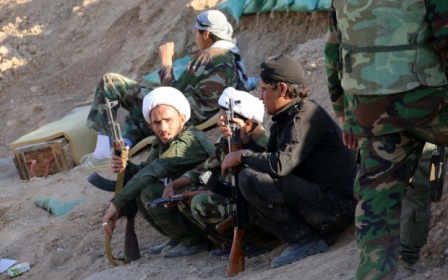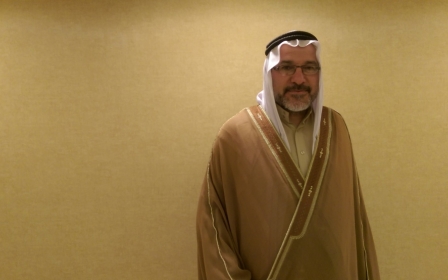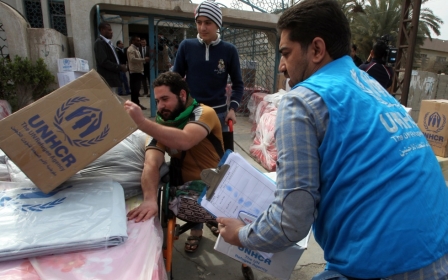Iraqi PM offers amnesty to forces who fled Islamic State

Iraqi Prime Minister Haider al-Abadi on Thursday offered an amnesty covering members of the security forces who fled the Islamic State group, provided they return to their units within 30 days.
Multiple Iraqi divisions collapsed when an IS-led offensive swept through Iraq last June, overrunning large areas north and west of Baghdad.
In their haste to escape, some security personnel shed their uniforms and abandoned vehicles, weapons and other equipment, which the group have since employed against government forces.
The statement from Abadi's office did not specifically mention IS, but the amnesty covers those who fled, were absent or harmed themselves to avoid service.
The amnesty specifically excludes those who committed offences including crimes against state security, corruption and abuse of influence.
It was unclear if tens of thousands of so-called "ghost soldiers," who are on the payroll but do not show up for work, sometimes splitting salaries with their commanders, would be covered.
Many have criticised the ineffectiveness and corruption of the Iraqi army following its creation by the US after the 2003 invasion of Iraq.
“The Iraqi army has long been notorious for being wholly corrupt, with officers invariably paying for their jobs in order to make money either through drawing the salaries of non-existent soldiers or through various other scams,” wrote Patrick Cockburn in the Independent.
“One Iraqi politician told The Independent a year ago that Iraqi officers 'are not soldiers, they are investors'.”
While Iraqi security forces performed dismally in the early days of the IS-led drive, they have since regained significant territory with backing from pro-government paramilitaries, a US-led coalition and Iran.
New MEE newsletter: Jerusalem Dispatch
Sign up to get the latest insights and analysis on Israel-Palestine, alongside Turkey Unpacked and other MEE newsletters
Middle East Eye delivers independent and unrivalled coverage and analysis of the Middle East, North Africa and beyond. To learn more about republishing this content and the associated fees, please fill out this form. More about MEE can be found here.




